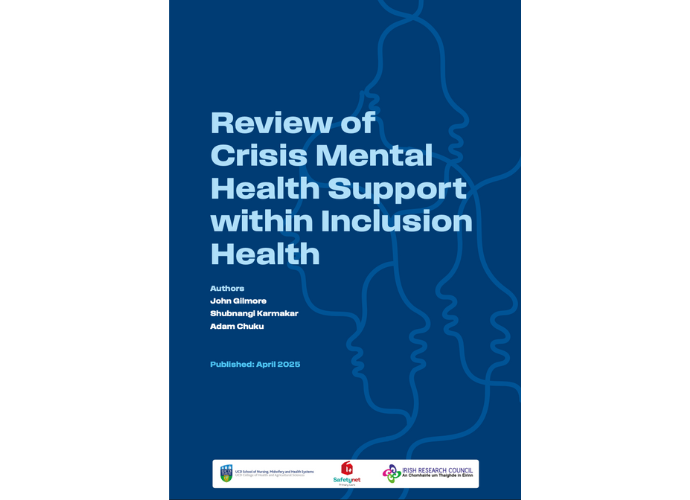.png)

Barriers and Enablers to Crisis Mental Health Support for People Experiencing Homelessness in Ireland

Introduction
This project explores the real-world experiences of healthcare professionals delivering mental health care to people experiencing homelessness in Ireland. Funded by the Irish Research Council (now Research Ireland), the study aims to identify the systemic and practical barriers that prevent timely, appropriate crisis mental health care for this population, while also highlighting what enables effective, compassionate support. Through in-depth interviews and a focus group with clinicians and service leaders, including those working within SafetyNet Primary Care, the research surfaces critical insights into trust-building, trauma-informed care, and the need for integrated services that meet people where they are.
The findings reveal a system that is often fragmented, inflexible, and exclusionary, particularly for those with dual diagnoses or without a fixed address. Yet, the research also shows how continuity, flexibility, and a person-centred ethos can radically improve outcomes. The project offers eight key recommendations for policy and practice reform, including trauma-informed training, harm-reduction approaches, and community-based crisis services.
Project Outline
This qualitative study investigates how frontline clinicians and service leaders understand and navigate the challenges of delivering crisis mental health care to people experiencing homelessness. The project draws on 14 semi-structured interviews with professionals including GPs, nurses, psychotherapists, and hospital consultants, and a focus group with 12 SafetyNet clinicians. Using Reflexive Thematic Analysis, the study generated five core themes: exclusion from services, the importance of therapeutic trust, the need for trauma-informed care, the role of stability in housing and addiction, and systemic failures in policy and practice.
The findings reveal that rigid structures, such as catchment area policies and abstinence requirements, disproportionately affect those most in need. Interviewees described services as often crisis-driven rather than preventative. However, examples of good practice highlight the impact of consistent, person-centred care delivered by committed professionals within flexible, interdisciplinary teams.
This project was funded by the Irish Research Council and guided by an expert advisory group of clinicians, policymakers, and people with lived experience. It contributes valuable evidence to support urgent service reform and advocate for integrated, humane responses to mental health and homelessness.
Project Outputs
Gilmore J., Karmakar S., Chukwu A., (2025) Review of Crisis Mental Health Support within Inclusion Health. University College Dublin.
Project Team
.png)

Adam Chukwu
Research Assistant

Dr Shubhangi Karmakar
Research Assistant
Expert Advisory Group



Chris O'Donnell (RIP)

Dr Fiona O’Reilly



